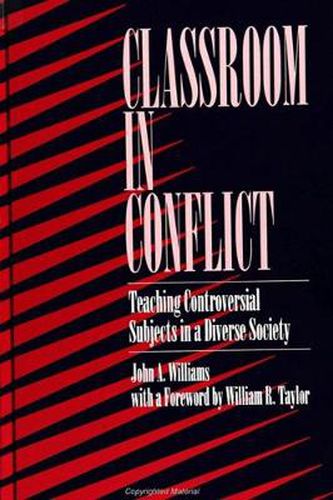Readings Newsletter
Become a Readings Member to make your shopping experience even easier.
Sign in or sign up for free!
You’re not far away from qualifying for FREE standard shipping within Australia
You’ve qualified for FREE standard shipping within Australia
The cart is loading…






This book transcends recent debates about political correctness to address the underlying problems of teaching controversial subjects in the college and university history classroom. The author criticizes both sides of the debate, rejecting, on the one hand, calls for a uniform, chronological history curriculum and, on the other hand, claims that only ethnic or racial insiders are qualified to teach about their communities. In chapters on colonial, comparative, and African history, Williams applies the concept of Gandhian truth to historical subjects, moving through tentative and flexible perspectives to achieve a complex picture of historical episodes. And in chapters on imperialism, nationalism, racism, and the problem of the other, he discusses the difficult and contingent nature of conceptual language. In the second half of the book, he addresses framing rules of discussion by which sensitive issues can be discussed with diverse audiences, the relationship of American pluralism to a world perspective, and what can be accomplished through an education in pluralism.
$9.00 standard shipping within Australia
FREE standard shipping within Australia for orders over $100.00
Express & International shipping calculated at checkout
This book transcends recent debates about political correctness to address the underlying problems of teaching controversial subjects in the college and university history classroom. The author criticizes both sides of the debate, rejecting, on the one hand, calls for a uniform, chronological history curriculum and, on the other hand, claims that only ethnic or racial insiders are qualified to teach about their communities. In chapters on colonial, comparative, and African history, Williams applies the concept of Gandhian truth to historical subjects, moving through tentative and flexible perspectives to achieve a complex picture of historical episodes. And in chapters on imperialism, nationalism, racism, and the problem of the other, he discusses the difficult and contingent nature of conceptual language. In the second half of the book, he addresses framing rules of discussion by which sensitive issues can be discussed with diverse audiences, the relationship of American pluralism to a world perspective, and what can be accomplished through an education in pluralism.